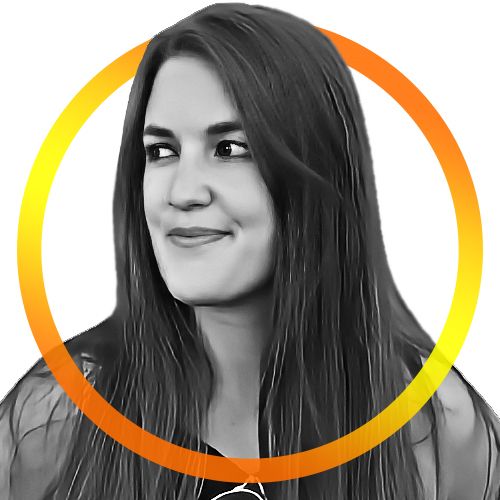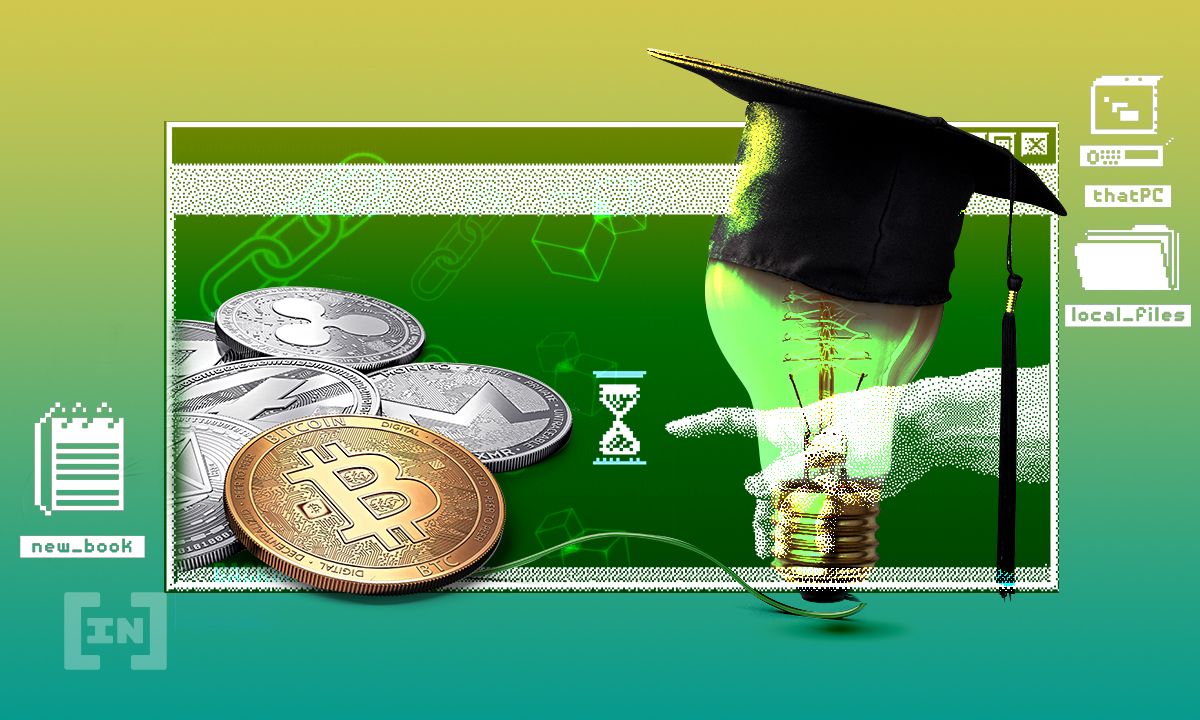Blockchain is an amazing tool for personal freedom. To become mainstream it needs to overcome the stigma of speculation and suspicion. The best way to do this is through education.
The asset is new, its nature is a mystery for many and its price is rising (and sometimes falling) spectacularly. In addition, anyone with an opinion rushes into the debate trying to prove it either is a scam or a blessing for humanity.
Meanwhile, the average person starts wondering if they too should buy some of that magic internet money that will reach astronomical heights and make them rich fast.
They should not.
Cryptocurrencies were not invented for speculation. It is an inevitable byproduct, yes, but speculation on an asset does not change its nature. So for all of us out there who do not feel like Wolves of Wall Street — is crypto even worth paying attention to?
Oh yes it is.
Why does blockchain matter?
Blockchain — the technology behind cryptocurrencies — is a unique invention that made it possible to store and manage data without any central authority. It may not sound as mind-blowing as teleportation or a colony on Mars, but it is a major shift in the very organization of our society.
Just think about it — at every stage of your life, any data concerning yourself or your belongings is being kept by someone. Your health data by health insurance or hospitals, your online history by your browser provider, your savings by your bank etc.
There’s always some organization taking responsibility for managing your data. You trust it because everyone trusts it. You also might not have much choice. The problem is it’s all fine…until it’s not.
Trusted third parties sometimes fail because they are managed by humans. However, humans are prone to mistakes, corruption, or simply poor judgment. Moreover, a centralized entity is more susceptible to targeted attacks.
The blockchain stores and manages your data in a decentralized way. This means without a trusted third party. We could become true owners of our data and the only ones to be able to dispose of it. Since almost every aspect of our lives links to a piece of digital data somewhere, the blockchain can quite literally transform our society.
Blockchain provides a choice
Imagine a healthcare system where you own your patient data and can choose to show your Covid test at an airport. While keeping the other information only for your physician.
This data would reside on a blockchain, protected from any intrusion into a centralized server. This is an event that happens far too often to hospitals.
Another example is your online life. Imagine a browser that keeps your internet data on your computer. You can choose to receive ads (proposed by a local machine learning). You can also receive rewards for your attention to them — via blockchain, of course.
Your browser data never goes to the centralized servers of a Silicon Valley company for use in opaque algorithms. Your online experience cannot be manipulated.
Another area is money — a domain that can hugely benefit from decentralization, both with regards to the control over its emission and the ability to freely dispose of it.
Cryptocurrencies are a great tool for personal freedom: we can choose the one we like and go on using it, without any approval from whatever organization.
If you are lucky enough to live in a country where this simple feature doesn’t make you dream, just think of millions of people living under authoritarian regimes that use access to money as a tool of repression. In addition to the 1.7 billion unbanked people globally.
All this looks kind of idyllic, but we’re not quite there yet. To enjoy decentralization we must use cryptographic keys to manage our data and trust the blockchain protocol to conduct transactions securely.
Both these points could be a deal-breaker for the average person simply because of a poor understanding of what the blockchain is and how it works.
Education drives adoption
Even if we all now use technology daily, the majority don’t have any idea of what’s happening behind the screens.
So we proceed with a millennia-old logic. We rely on the reputation of an organization and hope that their expertise combined with national regulation will not let them do things wrong (we’ll be often mistaken on this). Very few try to understand the mechanics. Those who do eventually face the obstacle of proprietary algorithms not available to the public.
Blockchain, on the contrary, is open-source. Any curious mind can examine its code and learn how it handles data. Everyone can see for themselves. Those who cannot read code have ample descriptions and explanations on the internet.
Stuck on trusting reputation
However, we are so stuck in the status quo (and maybe also lacking critical mind?), that these explanations often come down to one thing we know — reputation.
In an imaginary debate Andreas Antonopoulos vs Christine Lagarde we would rather listen to Madame Lagarde. This is because at the end of the day she holds a prestigious position and has authority over our money. We won’t realize she would be wrong, because we wouldn’t have enough knowledge to judge.
This is painted black, of course. Crypto awareness is on the rise, many people have heard about bitcoin (BTC) breaking new highs… but it’s not enough.
To become mainstream, crypto needs to be perceived not as a speculation tool for tech-savvy opportunists or an obsession of rebellious geeks, but as a societal revolution and a means to gain personal freedom. The only way to do this is through education.
We need to get familiar with the blockchain mechanism to realize that a trustless system is more predictable and reliable than any human reputation. We also need to develop good habits when handling our private keys: assuming responsibility is a price to pay for freedom.
To a better future?
There’s still a long way ahead to change the old habits and power relationships that shape our daily life. However, when a certain threshold is met and the network effect forces the trend, we might wake up in a different kind of society.
The society where people systematically ask the right questions such as “How is my data handled?,” “Who has access to it?,” “How do your algorithms work?” Such “trustless” attitude can — ironically — make the world more trustworthy, and human relations more cordial.
I like to imagine such a future. I believe that educating people for free will get us there the fastest. This encouraged us at D.Center to create a free educational resource. It is organized as a map of all things blockchain explained at different levels of detail.
People with various backgrounds, interests, and knowledge can all learn more about crypto-related matters. This is one way of introducing people to this great alternative that is the blockchain.
Trusted
Disclaimer
In compliance with the Trust Project guidelines, this opinion article presents the author’s perspective and may not necessarily reflect the views of BeInCrypto. BeInCrypto remains committed to transparent reporting and upholding the highest standards of journalism. Readers are advised to verify information independently and consult with a professional before making decisions based on this content. Please note that our Terms and Conditions, Privacy Policy, and Disclaimers have been updated.


